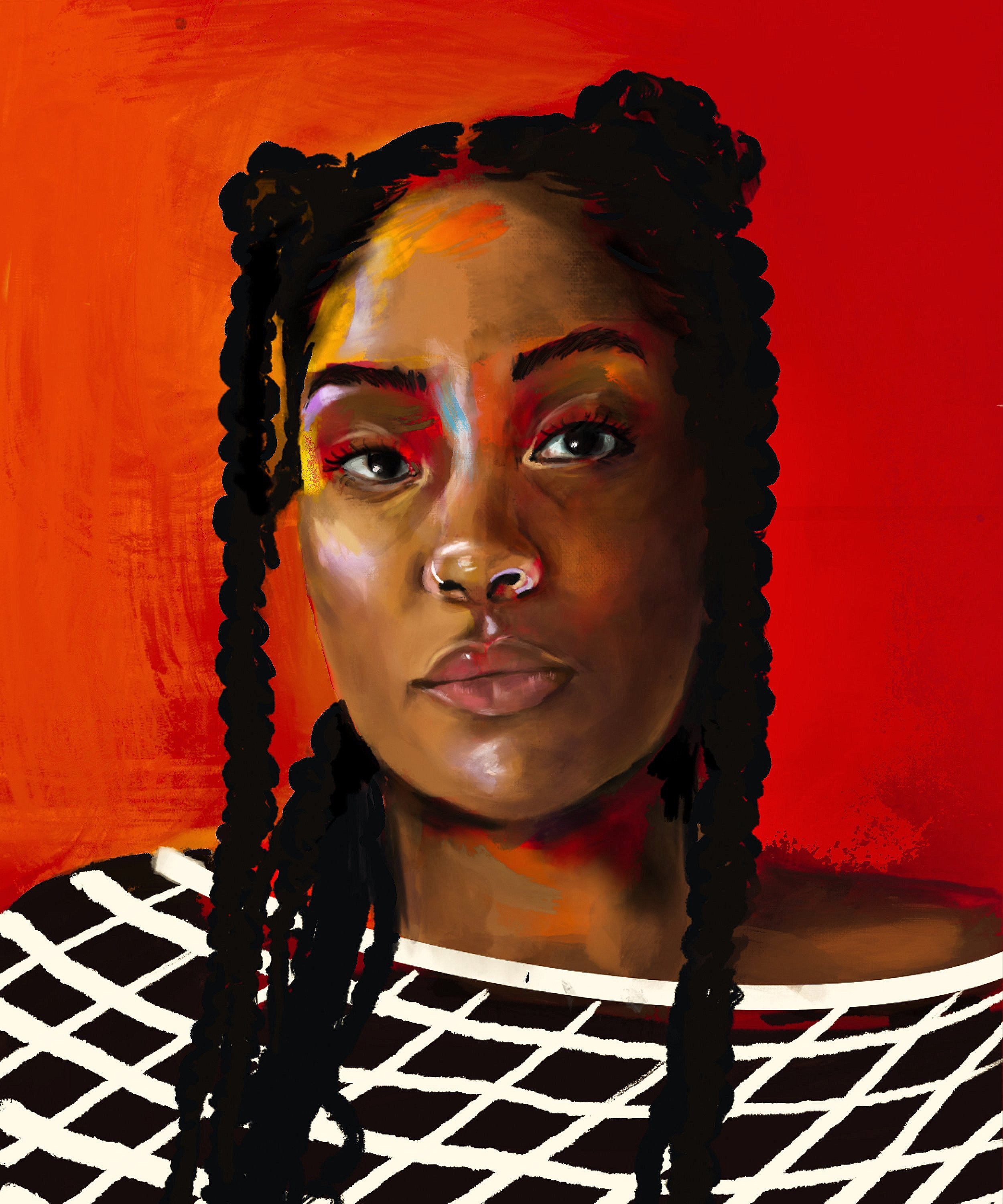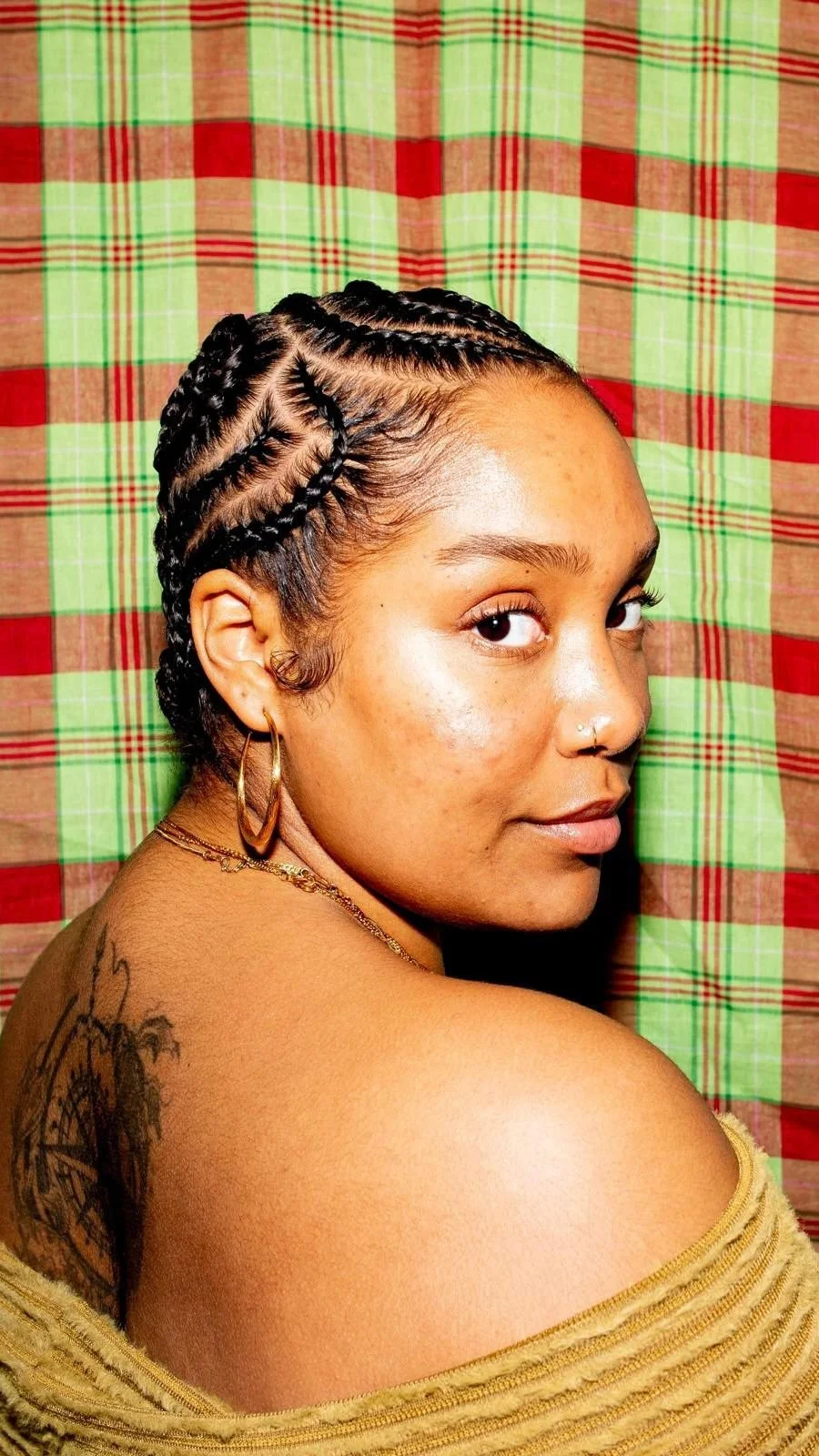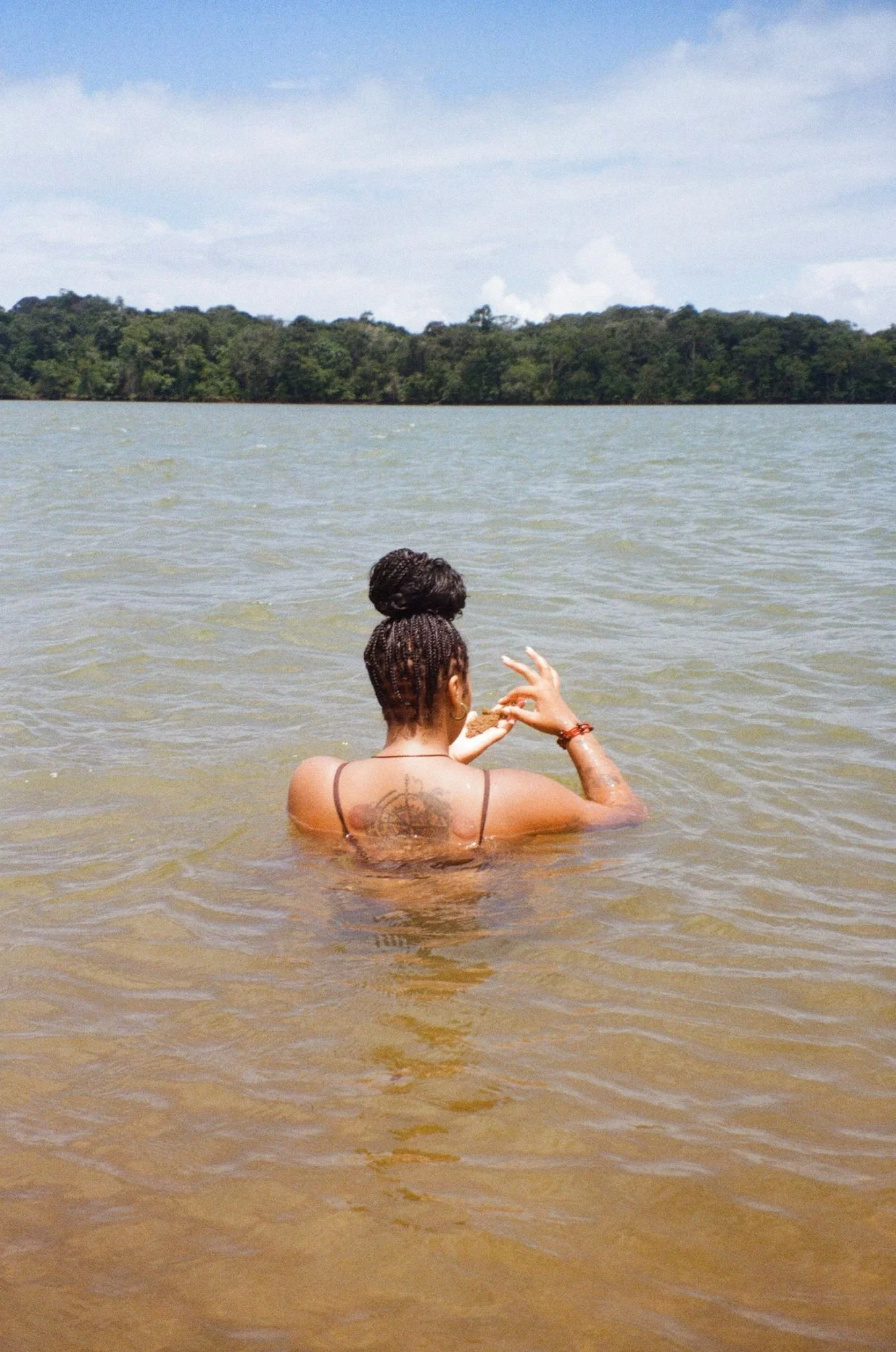
MORE THAN A LABEL
Exploring the Layers of Being Queer
JUNE 2025
Portrait Series: Part of "The Colors of Us" Exhibition Shanella Bleecke
“An Archive of Survival”
A multidisciplinary cultural creator from Amsterdam—programmer, curator, filmmaker, and storyteller—Shanella champions unheard voices through her work. Elevated in local media and Winter Pride programming, she bridges personal history and public representation.
Queerness as Resistance, Not Just Romance
Queerness is often flattened into romantic or sexual categories, for Shanella is a lived protest—not just an identity marker. It’s a way of existing in the world. It’s spiritual. It’s defiant. It lives in how she speaks, how she moves, and how she dares to take up space in systems that weren’t designed for her. She describes it as a creative, living force —something woven into the rhythm of her life. It is certainly not limited to who she loves. It’s she makes space for herself —sometimes with joy, sometimes with fire. And dance like nobody’s watching… and how I keep dancing when they are.”
“Queerness isn’t a category. It’s a stance. It’s how I move, how I resist, how I breathe. It’s how I dance like nobody’s watching… and how I keep dancing when they are.”
It is not uncommon for Shanella to face different forms of stigma and misunderstanding when people hear the word “queer.” Of course, the fullness of her life doesn’t fit that stereotype. Her queerness includes quietness, faith, family, cultural traditions, softness, and humor—facets that are often overlooked when someone’s identity becomes their label.
“They probably imagine rainbow socks, three open relationships, and that I march in protests every weekend. They miss everything in between. That I pray. That I cook Surinamese food for the people I love. That sometimes I’m silent. That I’m just… a whole-ass person. I am an archive of survival, humor, and sacred chaos.”
The Queer Representative
The current urgency for diversity, equity, and inclusion (DEI) is starting to receive the recognition it deserves. However, on a broader scale, there is still much work to be done to move beyond symbolic gestures and ensure that individuals from marginalized communities do not experience the burden of being the "diversity hire."
In Shanella case, she recalls being invited to speak on a panel "about her art"—only to be asked questions solely about her queerness. Her skill and creative voice were dismissed in favor of her identity. It’s a familiar story for many: being present, but not being heard.
“In some circles, being queer opens doors—but only if your queerness serves the right narrative. In others, those same doors stay locked. Some people see you as a threat. Others want your identity, not your insight. Still, the people who really see me—they build new doors entirely.”
“It felt like I was there as a checkbox, not as a voice.”
— Shanella Bleecke
The Performance of Identity
Queerness comes with complex expectations—not only from outside the LGBTQIA+ community but also from within it. Often, individuals are expected to behave a certain way to fit into predefined boxes of how queerness should look in order to truly represent who you "claim” to be.
“Oh, definitely. Like I have to be queer enough, visible enough, political enough. But not too radical, not too messy, not too loud. There’s this weird pressure to perform your identity in a way that’s palatable. But I’m not performing. I’m a person.”
Have you ever felt pressured to be more queer in a particular way?
The topic of visibility is somewhat complicated for Shanella. She experiences it being both liberating when she chooses suffocating when it is imposed—like being in a glass box with everyone staring, judging, assuming. The display of who she is as a queer person takes different forms shifting between being outgoing and reserved. She describes this duality sometimes like a mystery or a prayer to alternative to Beyonce on stage. But then it depends on who’s watching and whether or not they’ve earned the right experience that side of her.
“Sometimes I’m a mystery, like a prayer. Sometimes I’m Beyoncé on stage. It depends who’s watching… and whether they’ve earned the right to see me.”
Holding Contradictions With Grace
Queerness, has taught her to honor contradictions, making her softer with people who doesn’t fit into binary definitions and stronger in the face of systems that try to erase them. That love is not something you earn, it’s something you honour. It is not always about sex, pronous or politics but sometimes it’s about safety and not having to flinch everytime you enter a room. To make it through the day with ones dignity and joy intact. And so as a queer person, she would hope to live in a world where her existence isn’t up for debate.
“Where I can just be — without having to constantly explain, defend, or simplify myself for someone else’s comfort.”

